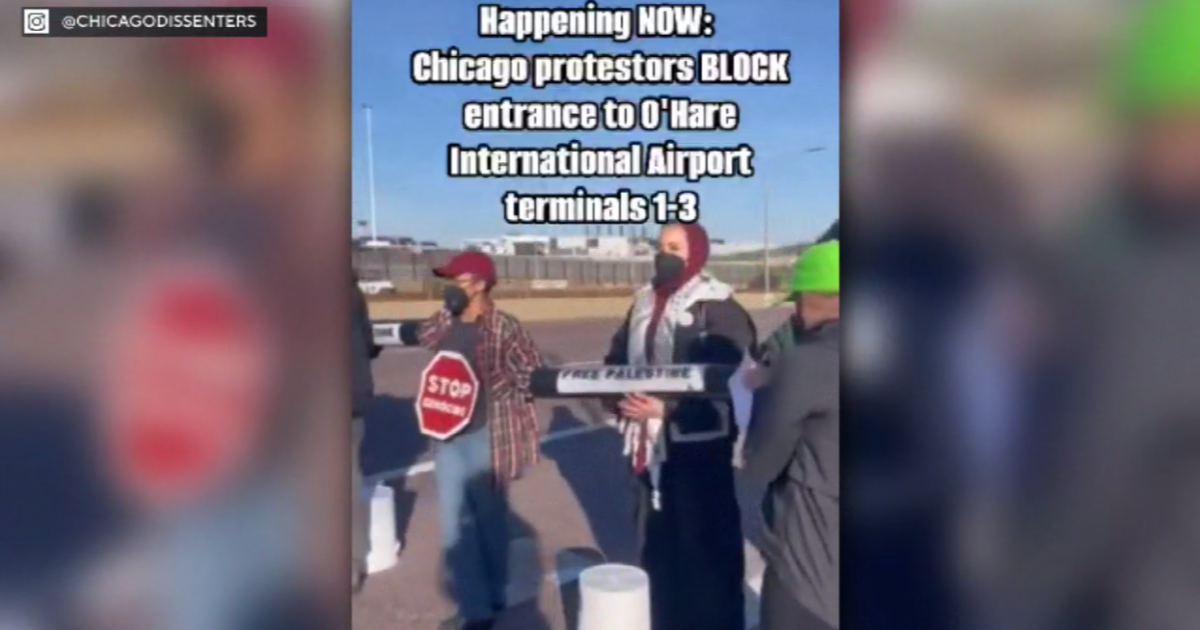Re-Build The Wall? Dems See Opportunity, Danger In Midwest
(AP) — President Donald Trump smashed the blue wall in his first White House bid, chiseling a path to the presidency through Midwestern states that hadn't backed a Republican presidential contender in three decades.
But as he gears up for his re-election bid, there are early signs that Democrats are regaining their strength in Pennsylvania, Michigan and Wisconsin, clinching governorships and making inroads in state legislatures.
There is no surer way for Democrats to block Trump's re-election than to reclaim that trio of states, which may have supplanted Florida and Ohio as the nation's premier presidential battlegrounds. But Democrats who know the region best are warning against overconfidence and suggesting the leftward lurch from some candidates could alienate the region's working-class voters.
"I would never underestimate Donald Trump," Wisconsin's newly-elected Democratic Gov. Tony Evers said when asked if Trump would win his state a second time in 2020.
"I don't agree with almost anything he's done," Evers added. "But he's an extraordinary politician and extraordinary human being."
Michigan's freshman Gov. Gretchen Whitmer encouraged Democrats to rally behind a "pragmatic" candidate focused on achievable policies, a subtle dig at the aggressive liberal agenda that has been embraced by some candidates. Above all, she suggested that the Democrats' blue wall would not be resurrected in 2020 without significant time and attention from the Democrats who want to take down Trump.
"At some point I may get involved in this primary and support a candidate," Whitmer said. "But right now, I think everyone, for their sake and the sake of the people my state, needs to come to Michigan."
The contrasting visions over how to defeat Trump were on display this weekend. As Midwestern governors were in Washington talking about everyday governing challenges at the National Governor's Association, high-profile presidential contenders were promoting ambitious liberal priorities in early-voting primary states.
Massachusetts Sen. Elizabeth Warren and California Sen. Kamala Harris stumped in New Hampshire and Iowa for universal health care, free college tuition and tax hikes on the rich.
Ohio Sen. Sherrod Brown, who is considering launching a presidential campaign, played up his local roots as he told voters in Nevada that other Democrats weren't spending enough time talking to workers, including union members, about issues like wages, benefits and workplace safety. A handful of others — Minnesota Sen. Amy Klobuchar and even Vermont Sen. Bernie Sanders — have promoted their working-class appeal as well as they fight to stand out in the crowded Democratic field.
For now, Trump says he isn't worried. In conversations with friends and confidants, the president has expressed confidence he can maintain his grip on the blue wall in 2020.
He has told people at his private club in Florida that he expects to win Pennsylvania and Michigan. He also cited former Wisconsin Gov. Scott Walker's 1-point loss in November as a sign that he could still win the state, which hadn't backed a Republican presidential contender since 1984 before Trump's 2016 win.
The friends and confidants didn't speak on the record because their conversations with Trump were private.
The president's optimism ignores signs of trouble for him and his party across the Midwest, where Democratic governors dominated the GOP last fall. Democrats scored governorships in Pennsylvania, Michigan, Wisconsin, Illinois and Minnesota.
White House aides and Trump campaign officials were more cautious than the president when assessing his re-election prospects. Speaking on the condition of anonymity because they weren't authorized to speak publicly, they acknowledged Trump's path to victory relies almost exclusively on holding the states he won in 2016.
They're exploring more unlikely routes to victory, such as carrying Minnesota, a state that hasn't voted for a Republican presidential candidate since Richard Nixon in 1972. Trump lost the state by less than two percentage points in 2016. The GOP is also eyeing the effects of the recent turmoil in Virginia's Democratic Party with interest.
"We are looking not just to defend states but to expand into blue territory," said the campaign's political director Chris Carr. "President Trump's accomplishments and the campaign apparatus behind him are an unstoppable combination."
Trump and his allies are also betting that Democrats will make their task easier in 2020 by nominating a candidate aligned with the far-left wing of the party. Midwestern Democrats conceded that could be a problem.
"In the Midwest, being pragmatic is probably more important," Wisconsin Gov. Evers said.
He noted that Klobuchar in particular "has been labeled a pragmatist." ''If I was her I'd embrace that," he said. "I think that's a good place to go. I'm not sure if she is or isn't. It's too early to tell."
Democrats are divided, however, on whether a pragmatic appeal to the working class is the key to victory in 2020.
Trump did not defeat Hillary Clinton in the Midwest because working-class voters preferred Trump, according to former Pennsylvania Republican Gov. Tom Corbett. Trump beat Clinton largely because urban voters who typically support Democrats weren't excited about her candidacy and didn't turn out, he said.
"She lost," Corbett said. "That's not going to happen this time."
Corbett's successor, Democratic Gov. Tom Wolf, pointed to signs of cracks in Trump's base as evidenced in his own 17-point re-election last November.
"They are with him, but I got a chunk of Trump voters," Wolf said, charging that Trump's presidency has "not made the lives of people in Pennsylvania measurably better."
In Michigan, Whitmer noted that Trump won in 2016 with fewer votes than former President George W. Bush earned when he lost the state in 2004.
"I was heartbroken, but we didn't turn out the vote," Whitmer said of Trump's 2016 victory, offering a warning to any Democrat that believes last fall's gains will means the blue wall is back for sure: "2020 should not be taken for granted."
Copyright 2019 The Associated Press. All Rights Reserved. This material may not be published, broadcast, rewritten or redistributed.



